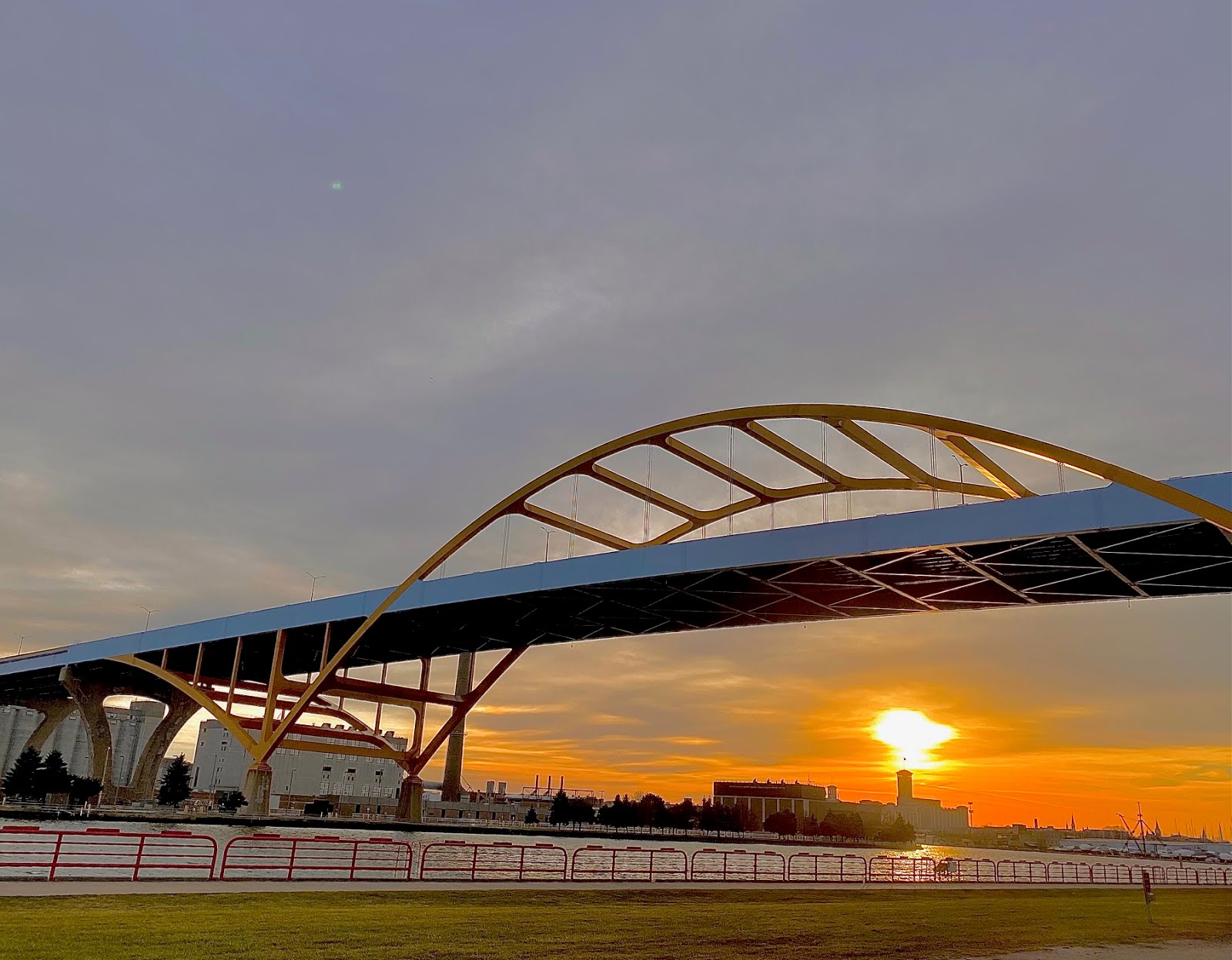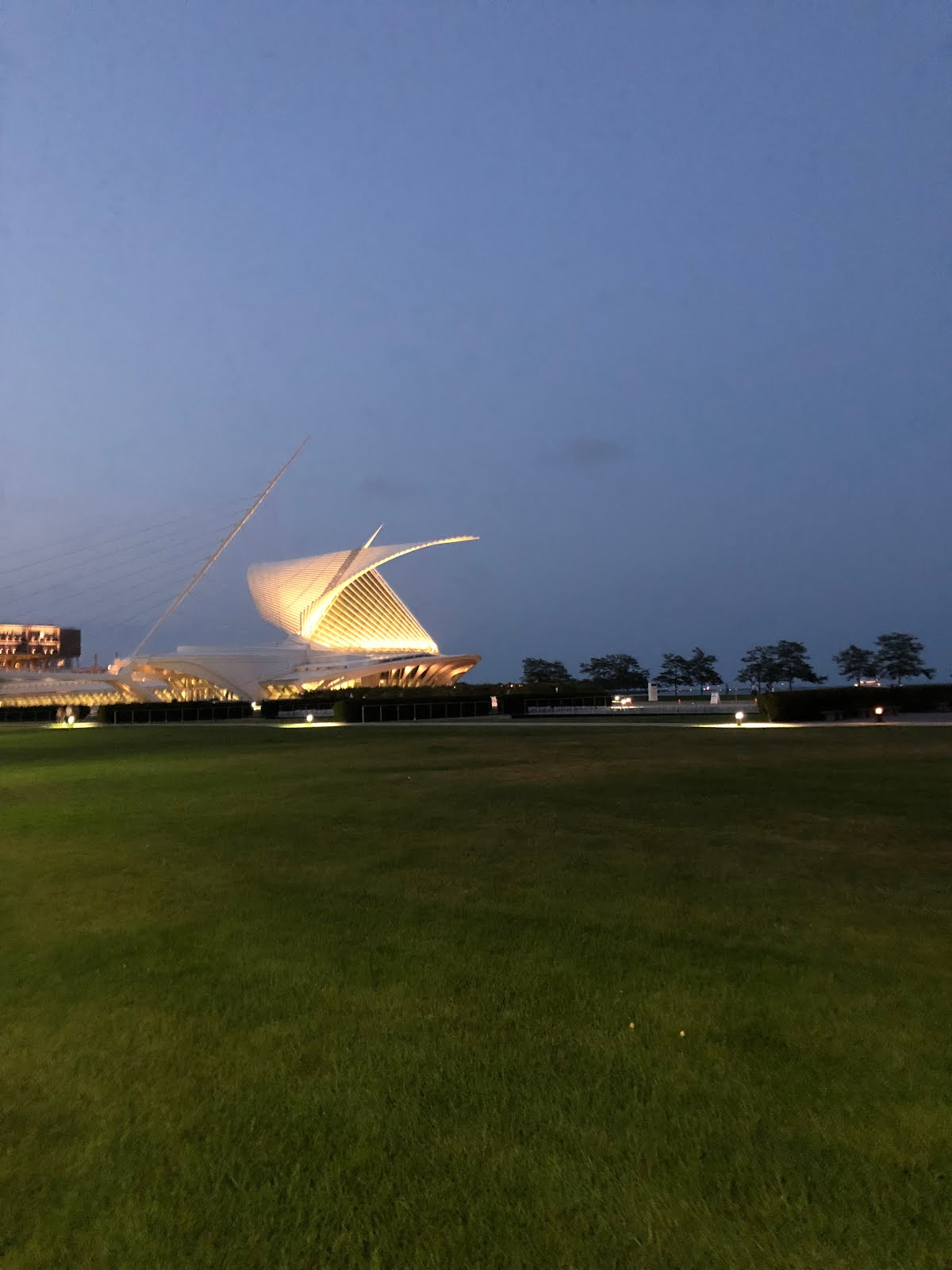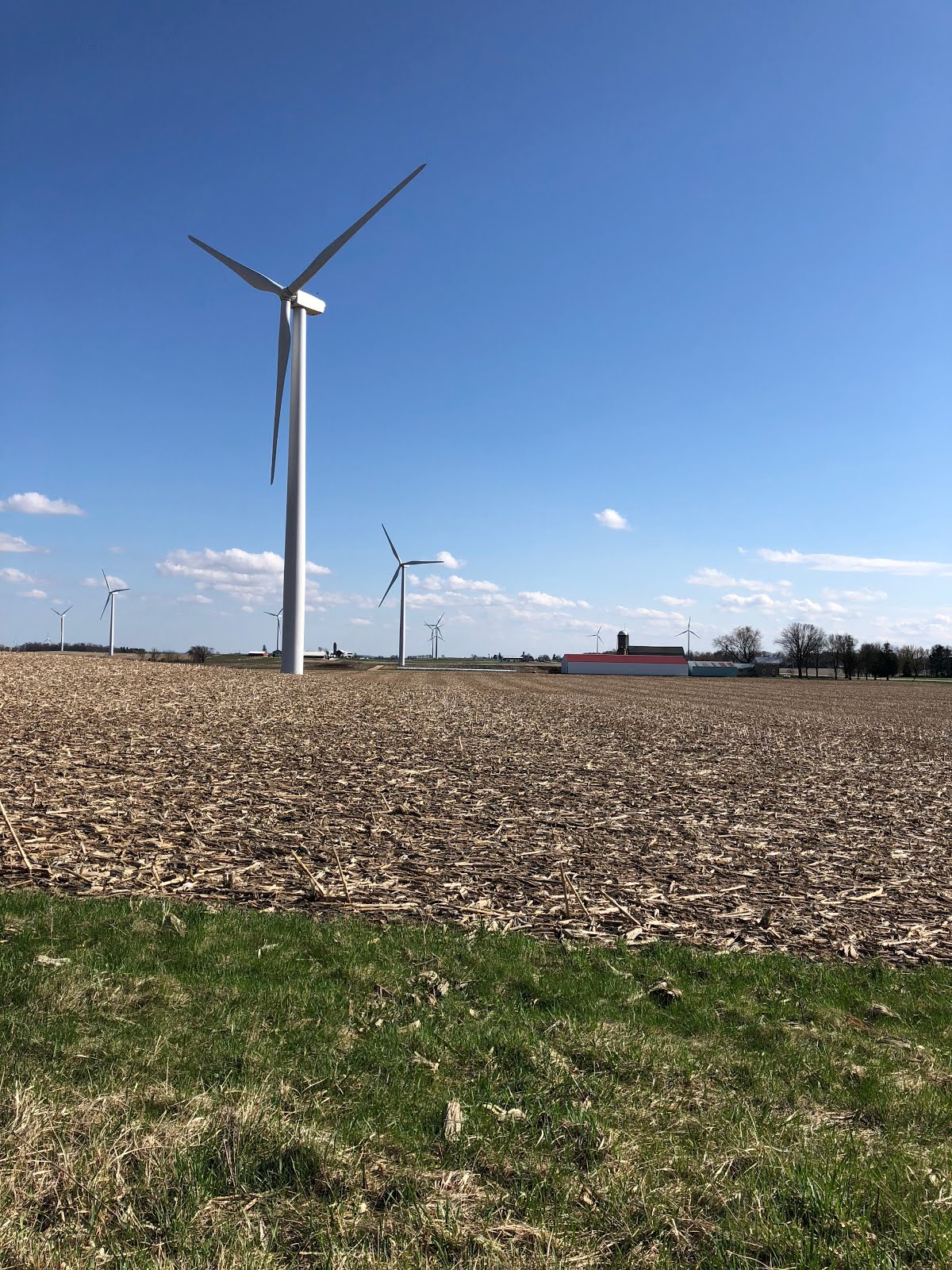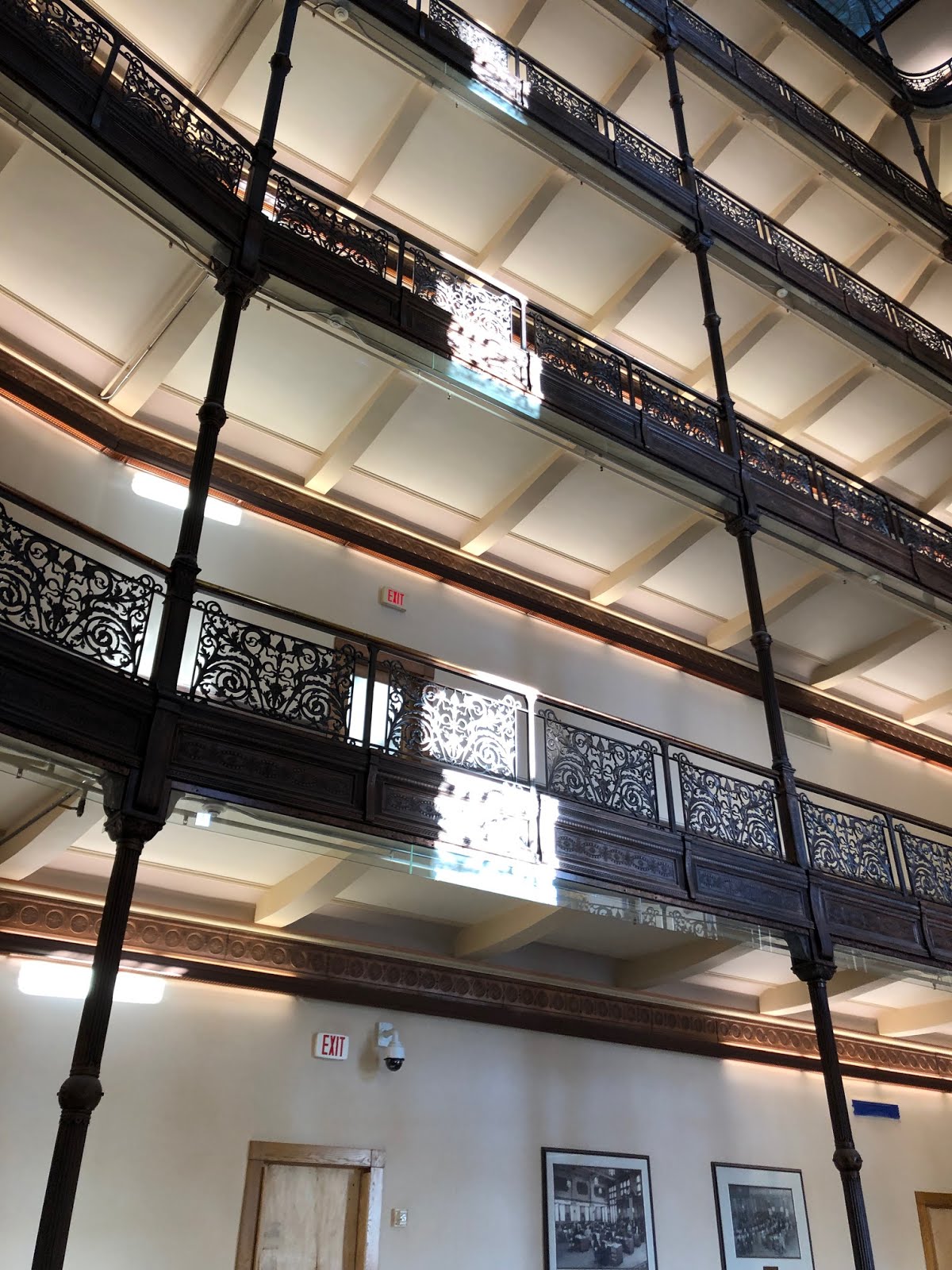Wisconsin, disconnected
[Updated from 2:58 p.m.] They say we're more interconnected than ever, and who would argue the point?
You can watch a movie or a live sporting event on a smartphone or tap it to a grocery store checkout pad and your bill is paid.
But when I read a piece in the Journal Sentinel online Sunday about some small funding gestures by the Wisconsin Public Service Commission to help smaller Wisconsin communities get better broadband connections, I remembered this story from a few years ago about what happened to a rejected opportunity about ten times more valuable:
Heck, you can't even find optimal bus connections between and across some cities in Wisconsin because the GOP-led legislature banned the establishment and operation of Regional Transit Authorities.
That short-sighted move continued official Wisconsin, talk-radio inspired hostility to urban transit dating to the late 1990's when Tommy Thompson and his legislative allies banned state planning for light rail systems and sank further consideration for congestion-defeating, development-spurring light rail connections between Milwaukee and Waukesha Counties - - and all the major destinations in between - - the Medical Complex, the Zoo, Miller Park, the Third Ward and so on.
The bias towards special-interest-driven highway building and its flip-side animus against transit is so strong in Wisconsin today that it took a Federal court settlement a few months ago to insert civil rights and economic justice fairness in the form of some added bus lines into the $1.3 billion Zoo Interstate highway Interchange project already well under way.
The project is part of a regional, $6.5 billion, decades-long seven-county highway expansion and improvement begun some years ago that did not include guaranteed funding for transit expansion and improvement.
It isn't hard to spot more of these intentional program and policy disconnects - - implemented or sought - - that help entrenched conservative or special corporate interests at the expense of everyday Wisconsin citizens, their rights and needs, including:
* Fee barriers imposed by the Wisconsin Public Service Commission on small solar energy installations, and onerous rules slowing wind farm approvals - - all aiding monopoly utilities or real estate interests.
* Rejection of available federal Medicaid and food stamp funds - - disconnecting low-income citizens from sustenance and better health.
* Efforts to obstruct the public's use of the Open Records law, neutralize the Wisconsin Government Accountability Board's non-partisan elections, lobbying and campaign oversight, end the historic public service mission in the UW system's Wisconsin Idea and wipe out convenient early voting hours statewide.
* GOP power-grabbing moves - - set aside for now - - that would have removed citizen input and control - - some real, some symbolic - - at the Wisconsin Natural Resources Board, the venerable institution overseeing many Department of Natural Resources functions.
In fact, the state is even willing to disconnect crucial, interdependent parts of the geography, the water table and pre-statehood cultures and traditions if there is a business interest which wants to substitute self-interested, government-provided room service instead.
The GOP legislature, with the help of the governor and an out-of-state coal mining company, rewrote Wisconsin mining law so the company could have more easily dug for deeply-buried iron ore and polluted the Penokee Hills and Bad River watershed - - regardless of the obvious damage that would have been inflicted on the landscape, wetlands, woodlands, recreational waters, Ojibwe tribal wild-rice growing estuaries and perhaps even nearby Lake Superior.
The plan has been abandoned - - for now - - but the law's sweetheart privileges for mining companies, and barriers to longer-standing and reasonable citizen powers to participate in permit reviews, is still on the books.
Little wonder that an Iowa pig farming operation now wants DNR permission to drop a huge, 26,000+ animal feeding business in the same neck of the woods; the words is out that the north woods are for sale.
Literally:
This is the same DNR, recast in 2011 by Scott Walker with a "chamber of commerce mentality," which just disclosed that it wants to sell sensitive publicly-owned acreage including trout spring ponds in Northern Wisconsin that connect pristine groundwater - - and the fish - - to downstream rivers, anglers and local economies.

It may be the era of connections elsewhere in the US, but in fragmented, backward-looking Wisconsin, people are disconnected by policy from modernity and common sense - - reliable Internet service, stress-free absentee voting, ample, customer-friendly, uo-to-date-bus and train links, and important information and transparent state agencies which are cornerstones of a 21-st century democracy.
Maybe damaging access to prized trout is the Wisconsin disconnect too far.
We'll see.
You can watch a movie or a live sporting event on a smartphone or tap it to a grocery store checkout pad and your bill is paid.
But when I read a piece in the Journal Sentinel online Sunday about some small funding gestures by the Wisconsin Public Service Commission to help smaller Wisconsin communities get better broadband connections, I remembered this story from a few years ago about what happened to a rejected opportunity about ten times more valuable:
State giving back stimulus funds intended for broadband expansion
Money was intended to expand high-speed Internet accessAnd that reminded me of the modern Amtrak rail connection between Milwaukee and Madison and to a larger Midwest High-Speed network rejected by Gov. Walker though it would have linked all the big cities and economies from St. Louis to Chicago to Detroit to the Twin Cities, etc.
Heck, you can't even find optimal bus connections between and across some cities in Wisconsin because the GOP-led legislature banned the establishment and operation of Regional Transit Authorities.
That short-sighted move continued official Wisconsin, talk-radio inspired hostility to urban transit dating to the late 1990's when Tommy Thompson and his legislative allies banned state planning for light rail systems and sank further consideration for congestion-defeating, development-spurring light rail connections between Milwaukee and Waukesha Counties - - and all the major destinations in between - - the Medical Complex, the Zoo, Miller Park, the Third Ward and so on.
The bias towards special-interest-driven highway building and its flip-side animus against transit is so strong in Wisconsin today that it took a Federal court settlement a few months ago to insert civil rights and economic justice fairness in the form of some added bus lines into the $1.3 billion Zoo Interstate highway Interchange project already well under way.
The project is part of a regional, $6.5 billion, decades-long seven-county highway expansion and improvement begun some years ago that did not include guaranteed funding for transit expansion and improvement.
It isn't hard to spot more of these intentional program and policy disconnects - - implemented or sought - - that help entrenched conservative or special corporate interests at the expense of everyday Wisconsin citizens, their rights and needs, including:
* Fee barriers imposed by the Wisconsin Public Service Commission on small solar energy installations, and onerous rules slowing wind farm approvals - - all aiding monopoly utilities or real estate interests.
* Rejection of available federal Medicaid and food stamp funds - - disconnecting low-income citizens from sustenance and better health.
* Efforts to obstruct the public's use of the Open Records law, neutralize the Wisconsin Government Accountability Board's non-partisan elections, lobbying and campaign oversight, end the historic public service mission in the UW system's Wisconsin Idea and wipe out convenient early voting hours statewide.
* GOP power-grabbing moves - - set aside for now - - that would have removed citizen input and control - - some real, some symbolic - - at the Wisconsin Natural Resources Board, the venerable institution overseeing many Department of Natural Resources functions.
In fact, the state is even willing to disconnect crucial, interdependent parts of the geography, the water table and pre-statehood cultures and traditions if there is a business interest which wants to substitute self-interested, government-provided room service instead.
The GOP legislature, with the help of the governor and an out-of-state coal mining company, rewrote Wisconsin mining law so the company could have more easily dug for deeply-buried iron ore and polluted the Penokee Hills and Bad River watershed - - regardless of the obvious damage that would have been inflicted on the landscape, wetlands, woodlands, recreational waters, Ojibwe tribal wild-rice growing estuaries and perhaps even nearby Lake Superior.
The plan has been abandoned - - for now - - but the law's sweetheart privileges for mining companies, and barriers to longer-standing and reasonable citizen powers to participate in permit reviews, is still on the books.
Little wonder that an Iowa pig farming operation now wants DNR permission to drop a huge, 26,000+ animal feeding business in the same neck of the woods; the words is out that the north woods are for sale.
Literally:
This is the same DNR, recast in 2011 by Scott Walker with a "chamber of commerce mentality," which just disclosed that it wants to sell sensitive publicly-owned acreage including trout spring ponds in Northern Wisconsin that connect pristine groundwater - - and the fish - - to downstream rivers, anglers and local economies.

It may be the era of connections elsewhere in the US, but in fragmented, backward-looking Wisconsin, people are disconnected by policy from modernity and common sense - - reliable Internet service, stress-free absentee voting, ample, customer-friendly, uo-to-date-bus and train links, and important information and transparent state agencies which are cornerstones of a 21-st century democracy.
Maybe damaging access to prized trout is the Wisconsin disconnect too far.
We'll see.









No comments:
Post a Comment